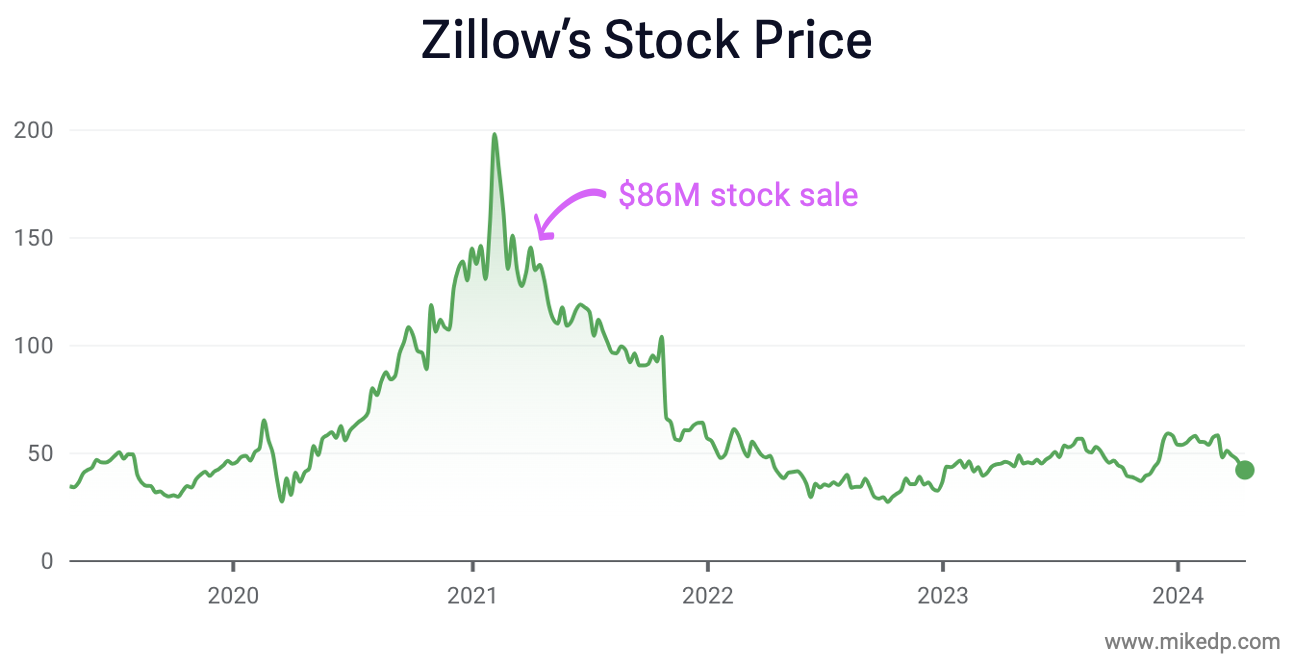The Highest Paid Execs in Real Estate
/Between 2021 and 2023, the CEOs of real estate’s largest public companies had highly varied upside from the sale of company stock – ranging from $145 million to $0 – while their companies had massive financial gains and losses.
Why it matters: Executive compensation through stock sales is a worthwhile datapoint to consider when thinking about a CEO’s optimism about the future of their business – and how they are incentivized to lead that business.
And in reality, that compensation appears to be very loosely based on a company’s actual financial performance, if at all.
Dig deeper: Between 2021 and 2023 Opendoor experienced significant financial losses, with a combined net loss of $2.3 billion and an Adjusted EBITDA loss of $737 million — typically the most favorable financial metric (closely approximating cash flow).
During that time, Opendoor’s CEO sold $145 million in company stock through dozens of transactions – $112M during the first two years (as CEO) and $32M in 2023 (as president of marketplace) before leaving the company in January 2024.
Between the first sale in 2021 and the last sale in 2023, Opendoor’s stock declined 83 percent.
During the same three years, Zillow had a combined net loss of $787 million but a positive Adjusted EBITDA of $1.1 billion — significant cash flow.
The CEO of Zillow sold $86 million of company stock in March 2021, when Zillow’s stock price was near an all-time high.
Zillow’s stock has dropped about 58 percent since then, but there have been no subsequent stock sales.
The other publicly listed companies round out the list, revealing several interesting outliers – including CEOs that have sold no stock.
The CEO of Redfin, which was unprofitable, sold $19 million in company stock — and also purchased $300k of stock in late 2023, while the CEO of eXp Realty, which was profitable, sold $71 million in company stock.
Interestingly, the CEOs of Compass (unprofitable) and Anywhere (profitable) have not sold any company stock during this same period of time.
It’s hard to ignore the outliers.
The former CEO of Opendoor, the most unprofitable company in the peer group, made the most from stock sales.
While the CEO of Compass, which went public about the same time as Opendoor, and the CEO of Anywhere, which was the most profitable, sold no stock.
The bottom line: There’s a before and after not included in this analysis: under what conditions a CEO was granted stock, why they decided to sell, and what they did with the money.
The focus here is the specific financial upside realized by the CEO – compensation for doing a job – how it compares to a peer set of CEOs, and how it relates to actual company performance.
The results are inconsistent and reveal a massive variance – more than I expected – and in that white space is an opportunity to learn more about incentives and intentions.















